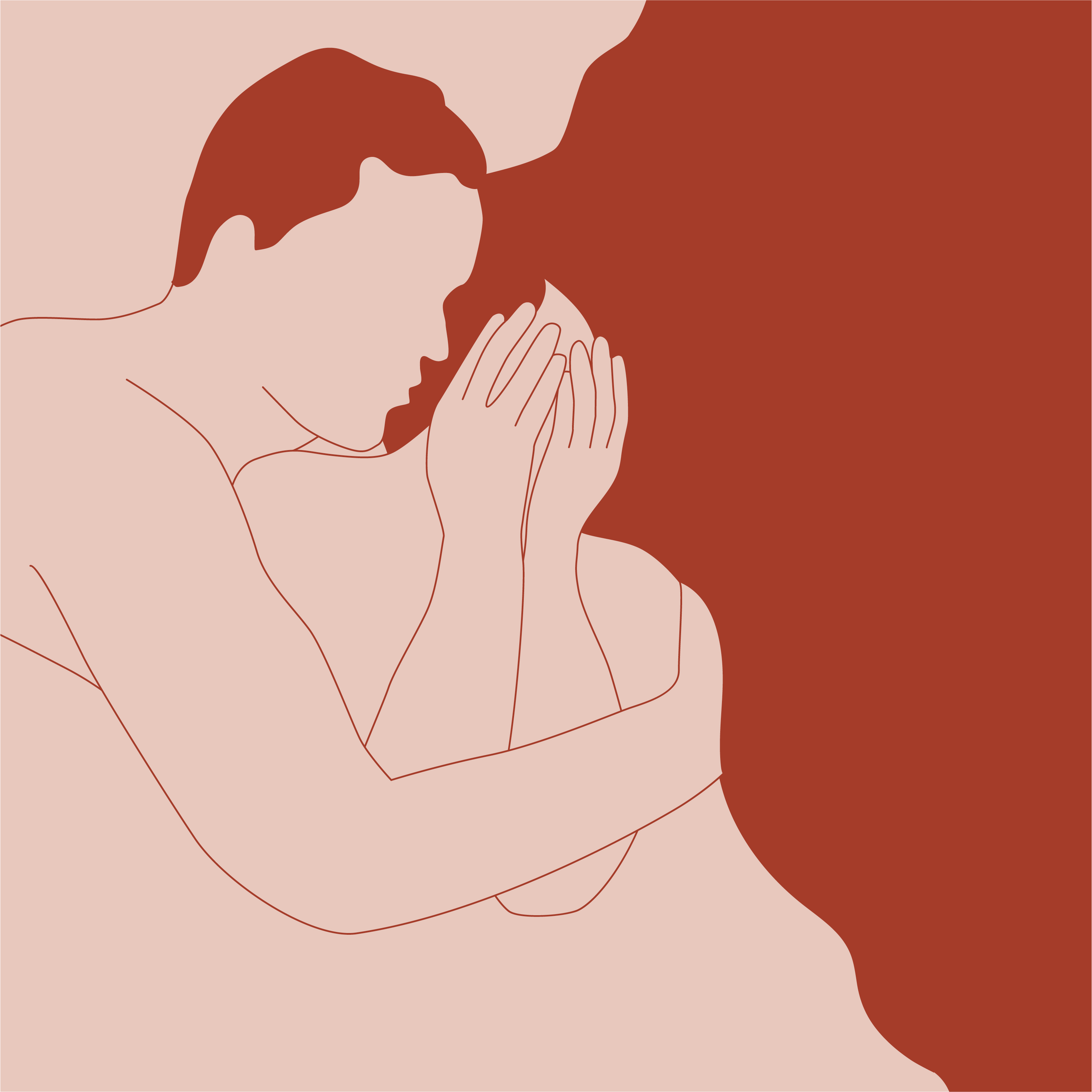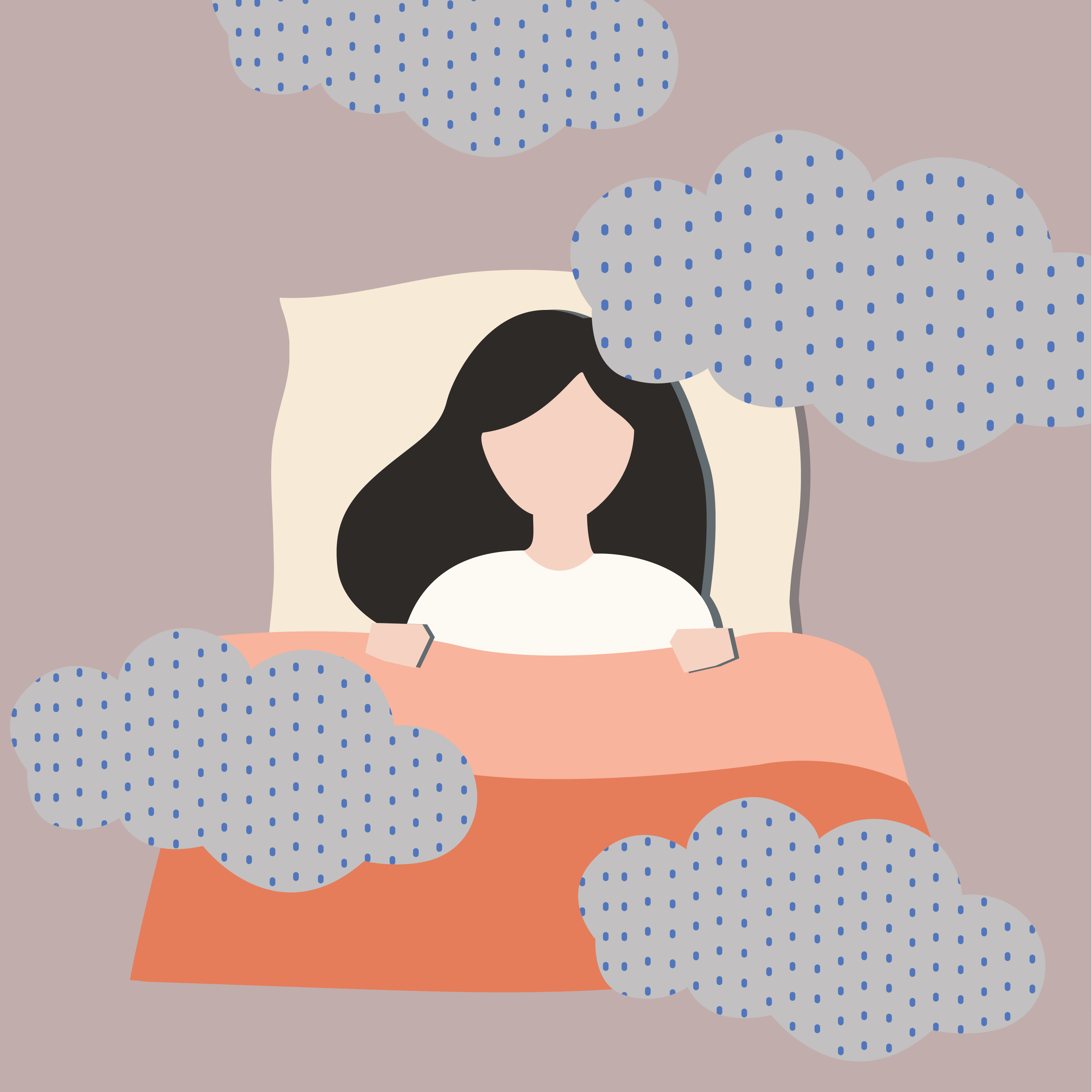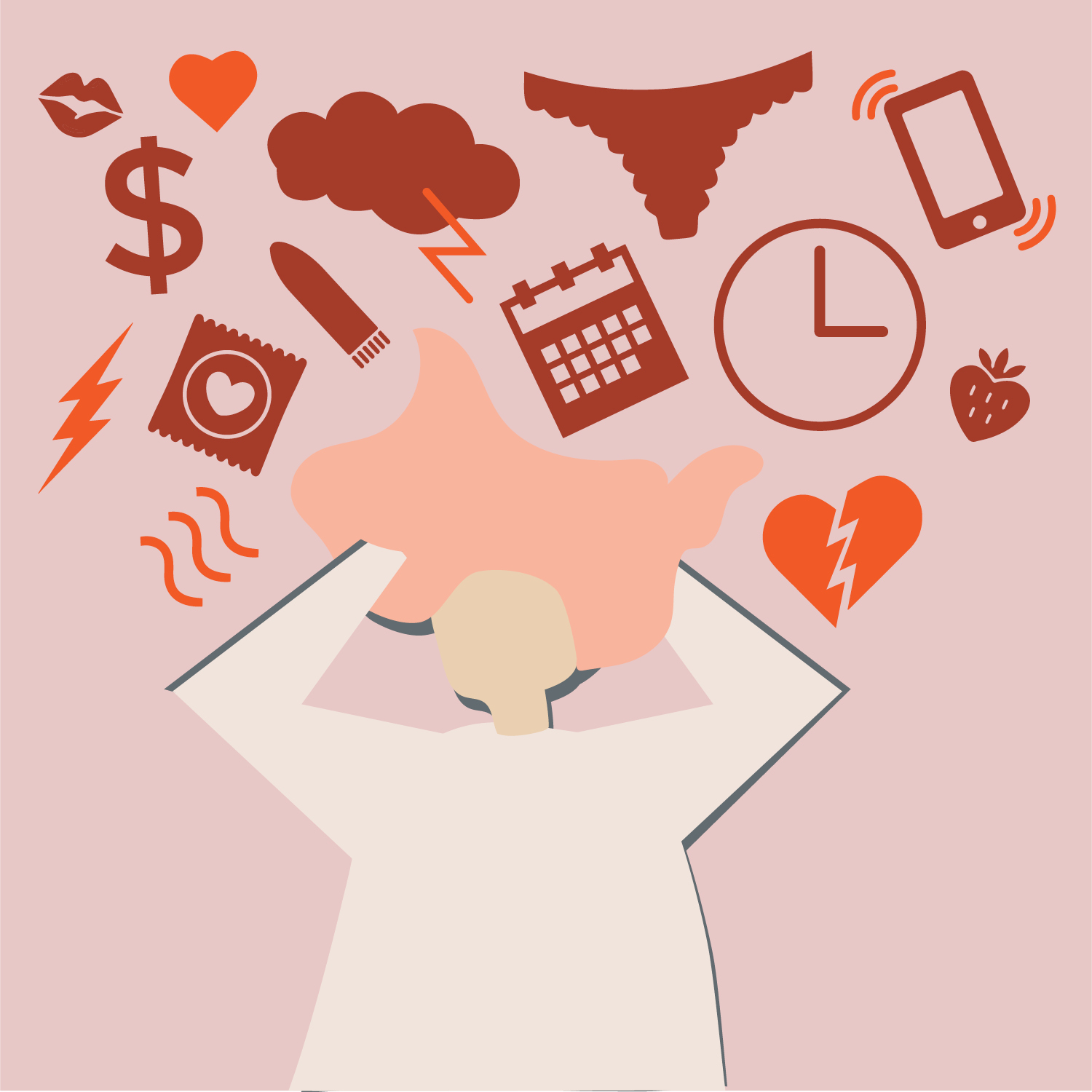Mar 25, 2021
FIRST PERIOD SIGNS AND SYMPTOMS
In the second instalment of our First Period series, we find out what to expect – and what is considered ‘normal’ – when it comes to first period signs and symptoms.
Getting your first period can take many young people by surprise, especially if you don’t know what to expect. You might have lots of questions – What does your first period look like? How long does your first period last? Everyone’s experience is different, however, there are some common first period signs and symptoms that will help you understand what to look out for. Our series expert, period educator Demi Spaccavento, explains some of the emotional and physical changes you might notice before and during your first period – as well as what’s ‘normal’ and what’s not.
WHAT ARE THE FIRST PERIOD SIGNS AND SYMPTOMS?
Everyone’s first period experience is different. Some people get their first period before they’ve even learned what a period is. Others wait years to get their period and wonder when it will finally arrive. You may feel a bit more tired that day, and may also experience some more intense moods. If you have mood changes around your period, don’t sweat it! This is a common symptom of our hormones changing. These strong emotions are linked with our menstrual cycle, and it can be helpful to remember that these strong feelings don’t always last. Getting your period is part of puberty. There are other signs of puberty that you may see before your period, but that you will also continue to see after your first period.
Stay in sync – enter your email below to get each new instalment of the First Period blog series delivered straight to your inbox when it’s published.
SIGN UP
HOW LONG DOES YOUR FIRST PERIOD LAST?
When you first find your period blood in your underwear it may be a lot or a little bit. Usually, period bleeds begin light for the first few hours, then become heavier. It may stay heavy for a few days, and then the blood flow becomes lighter again until it stops completely after 4-7 days. One of the most important things to remember is that periods can be irregular at first. When we first get our period, the body has a brand new job to do that it’s never had to do before. That means that for the first few years your period might come along with irregularities (heavy or light periods, late or early periods, short or long periods) and symptoms (period pain, moodiness, leg pain, nausea, headaches, PMS symptoms). It is more expected for teenagers to experience these symptoms, so be kind and patient with your body as it learns a new process.
WHAT DOES YOUR FIRST PERIOD LOOK LIKE?
When you first find the blood it may be pink, brown or red. Period blood is usually brown or pink when the flow is lighter, and becomes a richer red colour when the flow gets heavier.
WHAT’S “NORMAL”? WHAT’S NOT?
While everyone’s period experience is different, there is still an ideal way your period should look. If your period doesn’t look like this as a teen, that’s ok. It can take up to six years for our bodies to get the hang of having a regular period. Monitor your symptoms that are outside the average range, and chat with a period and hormone specialist if they continue.
You may experience tiredness, changed moods, achiness, acne, or other symptoms. Mild symptoms on or before your period are ok. Extreme versions of these symptoms are not considered ideal.
Cervical fluid is often referred to as discharge. It is a fluid that changes in consistency throughout the menstrual cycle. In the lead up to your first period, you may start seeing cervical fluid in your underwear or on toilet paper when you wipe. This is a good sign that your body is going through puberty, your hormones are changing, and your first period is on the way.
Once you get your first period, expect to see cervical fluid more often. Cervical fluid changes in its appearance throughout the menstrual cycle. It might be non-existent one day, and sticky, dry, crumbly, creamy, or stretchy another day. This is a great sign that your body is healthy! It also protects you from vaginal infections. If discharge becomes green or yellow, looks like cottage cheese or comes along with burning, itching or pain, see your doctor as this can indicate infection.
HOW MUCH BLOOD WILL I LOSE?
Everyone’s blood loss on their first period is different. Some people lose only a small amount of blood on their first period, others lose the average amount, and others lose more blood than average on their first period. The average amount of blood lost over the week of your period bleed is 2-4 tablespoons (30-50ml) worth of blood. That is about a shot glass and a bit worth of blood. It’s not as much as some people think!
A good way to know if you’re losing the average amount of blood is if you can go 3-8 hours wearing a pad or tampon without it leaking. A good way to tell if you’ve got a heavy period is if you need to change your pad or tampon every two hours or less because you’re losing so much blood that it’s leaking. It is ideal for our health to lose the average amount of blood. It’s also a good indicator that your hormones are healthy.
Demi Spaccavento is a passionate women’s health educator, author, high school teacher and the founder of Bright Girl Health, empowering students to be in tune with their body and never have to dread their period again.
Interested in learning more? Read Menstrual cycle 101
Shop our First Period Kits here.
Blogs

Jun 08, 2022
EXPLORING PERIOD CARE IN CULTURES AROUND THE WORLD
Our TOM Talks panelist Sabina McKenna explores how different cultures around the world approach period care.
Read More
Jun 08, 2022
STOP APOLOGISING FOR HAVING YOUR PERIOD
Our TOM Talks panelist Mel Mason talks about the importance of not apologising for having your period.
Read More
Jun 07, 2022
STRESSED? NOT SLEEPING? TRYING TO CONCEIVE?
TOM Talk's panelist Georgia Hartmann discussed the links between stress, sleep and fertility.
Read More
Jun 07, 2022
STRESS AND HOW IT AFFECTS YOUR SEX DRIVE
Certified sex coach Georgia Grace is here to unpack the link between stress and sex.
Read MoreProducts